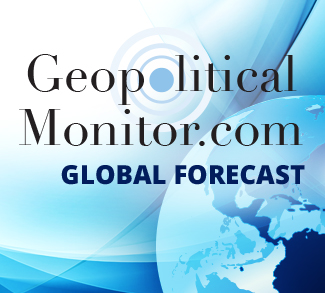Key Dates
September 6 – UK construction PMI for August.
September 6 – Germany factory orders for July.
September 6 – Japan household spending for July.
September 6 – China exports for August.
September 7 – Australia central bank interest rate decision and statement. Two forces will loom large over the Bank’s decision: the country’s tenacious Delta outbreak, which is leaving a string of lockdowns in its wake, and skyrocketing house prices from years of below-average interest rates. And though concerns stemming from the former are likely to win out during this week’s meeting, Australia’s first hike in over 11 years seems to be only a matter of time now.
September 7 – UK Halifax House Price Index for August.
September 7 – Germany ZEW economic sentiment for September.
September 7 – EU GDP data for Q2.
September 7 – Japan GDP data for Q2.
September 8 – US Bureau of Labor Statistics JOLTs job openings for July.
September 8 – Canada central bank interest rate decision and press conference.
September 8 – China Consumer Price Index for August.
September 8 – Morocco general election.
September 8 – US Federal Reserve publishes ‘Beige Book’ economic survey. The data is expected to inform the FOMC’s near-term decision-making regarding the pace of bond tapering.
September 9 – Germany trade balance for July.
September 9 – Mexico Consumer Price Index for August.
September 9 – ECB policy statement and interest rate decision.
September 9 – Brazil Consumer Price Index for August.
September 9 – United States initial jobless claims.
September 9 – United States crude oil inventories.
September 10 – UK GDP for July.
September 10 – UK manufacturing production and trade balance for July.
September 10 – Brazil retail sales for July.
September 10 – United States Producer Price Index for August.
September 10 – Canada unemployment data.
World
COVID-19 fast facts
- Australia is in the grips of a third wave of COVID infections, driven by the Delta variant. The country reported 1,756 new cases on Saturday – a record high. The surge has caused the Morrison government to moot the possibility of abandoning its longstanding ‘zero case’ strategy, though the lockdown approach remains popular with a large chunk of the general public (if not business leaders).
- The WHO’s Aug 31 situation report noted a decrease in cases across all global regions, with the exception of the Western Pacific.
- Around 2,000 cases of the Mu variant have been identified in the United States, though as yet there is no indication that it will be able to out-compete Delta.
Europe
Afghanistan debacle resurrects hopes for EU army
Joseph Borrell, the EU’s foreign minister, has stated that the United States’ departure from Afghanistan could lead to new EU efforts to pool sovereignty on defense: “There are events that catalyze the history. Sometimes something happens that pushes the history, it creates a breakthrough and I think the Afghanistan events of this summer are one of these cases.”
It’s true that Afghanistan laid bare the EU’s operational deficiencies, as the two EU battlegroups of 1,500 troops would fall short of the 5,000 needed to secure the Kabul airport – and that’s even if the battlegroups were well-funded and ready for deployment, which they are not. Yet the politics involved continue to make the prospect of any functional joint EU army a daunting task. There’s the base reluctance of EU publics to upload defense policy to Brussels (though support has been growing of late). Then there’s the material realities of the bloc’s consistent underspending on self-defense, which have been further compounded by the departure of the United Kingdom. The most likely outcome here is a modest expansion of the preexisting battlegroup concept – warts and all – which holds out the prospect of an EU army in style if not operational substance.
Americas
South America’s second-longest river shrinks, hurting agricultural exoports
The Parana River, which snakes through Brazil, Paraguay, and Argentina before meeting the ocean near Buenos Aires, is receding after consecutive years of below-average rainfall. The river’s typical flow rate of 17,000 has withered to 6,200, producing a string of blackouts along its nearly 5,000-km course as hydroelectric plants are forced to scale down. Transportation has also been impacted, particularly grain exports from Argentina; the Parana typically carries around 80% of Argentina’s grain exports to sea. In response, the Argentinian government has formed a new government agency to dredge the river and ensure its long-term viability as a transportation route.
Asia
Suga Yoshihide out as Japan prime minister
It didn’t take long for Japanese politics to revert to the mean of short-lived premierships following the abnormally long reign of Shinzo Abe. Suga Yoshihide – a close ally of the former prime minister – announced last week that he would not be standing for reelection when his Liberal Democratic Party (LDP) chooses a new leader on September 29. Ultimately, the Suga administration was felled by its bumbling response to the COVID-19 pandemic and the premier’s inability to connect with the public on a personal level.
As in the past, the LDP leadership race now becomes a race to pick the next prime minister of Japan. The field to replace Suga is wide open. It includes Taro Kono, the current front-runner, who previously served as foreign and defense minister. Fumio Kishida, a former foreign minister and Shinzo Abe’s one-time heir apparent, is also expected to figure prominently in the contest. Together they represent the two central factions of high-level LDP politics: supporters of former finance minister Taro Aso (Kono) and those who back Shinzo Abe (Kishida).
Africa
Humanitarian outlook deteriorating in northern Ethiopia
The kill counts traded by government and rebel leaders in the media last week may be unverifiable, but two things remain assured: 1) the civil war continues to rage in Ethiopia; and 2) the humanitarian outlook is worsening, evidently due to the government’s unwillingness to allow aid trucks to traverse its checkpoints. The United Nations has accused Addis Ababa of a “de facto humanitarian aid blockade,” and has warned that the situation is set to “worsen dramatically,” particularly in the northernmost extents of Tigray. Earlier in August, UN Secretary-General Antonio Guterres decried the “unspeakable violence” suffered by women in Tigray. We’re a long way from 2019, when Ethiopian Prime Minister Abiy Ahmed was being awarded the Nobel Peace Prize.
Data Snapshot



